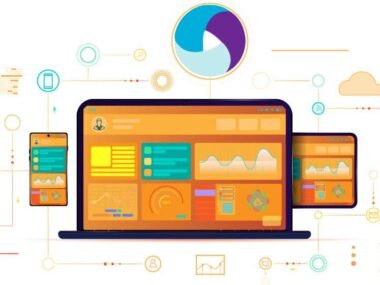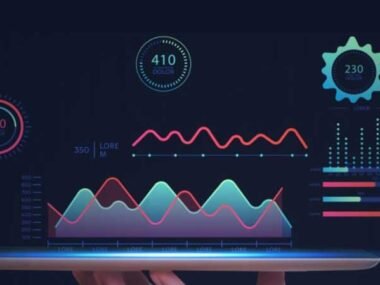Technologies like the Internet of Things (IoT) and artificial intelligence (AI) are revolutionizing home security, notes Stringer Management company, a leading property management expert . These technologies can be used when automating features in one’s home, bringing convenience, customization, and unparalleled protection. This enables homeowners to create safer spaces to offer them the ultimate comfort and peace of mind.
Smart home security systems, in particular, make up a significant percentage of the automation technologies that are used in smart homes. The current smart home security market is valued at around 32.5 billion U.S. dollars and is expected to reach 62 billion by 2029.
In this article, we’ll take a closer look at how automation tech is transforming residential security and highlight some of the latest technologies in home automation trends.
What Are the Security Benefits of Home Automation?
Smart home security is all about monitoring, controlling, and automating processes for enhanced convenience and safety. The systems and devices that makeup home automation technologies put home security in the palm of your hand with mobile applications, making it easier to manage home security any time of day, no matter where you are.
Using these technologies offers a wide range of benefits, including:
- Enhanced comfort
- Reduced energy costs
- Convenient remote access
- Increased home value
- Insurance incentives
- Greater protection
Overall, smart home security systems offer unparalleled peace of mind because you can manage your door locks and alarm system remotely.
The Latest Automation Technologies for Boosting Home Security
There are countless smart home security devices and systems on the market today, all made with the latest technologies. Below are some of the latest systems and technologies being used by these brands and many more.
IoT
The Internet of Things (IoT) is perhaps the most transformative technology that has boosted customer value in the home industry. IoT refers to any device that is connected to the internet that uses sensors to collect data. Just about every home automation device is an IoT device. Some examples of IoT automation devices that enhance home security include smart lights and smart door lights.
AI-Driven Assistance
Artificial intelligence can also play a significant role in home security solutions. For one thing, many of the systems mentioned already can be connected like voice assistance systems like Amazon Alexa, Google Home, and Apple Siri for enhanced convenience.
AI-driven processing power can also be leveraged in technology such as cloud-based video surveillance systems to identify threats in real-time. This technology can be connected to IoT security components — such as alarms or access control systems — so that when a problem is identified, the other systems can immediately spring into action. This technology can also be particularly valuable for real estate-based businesses that need to protect multiple properties, such as seasonal rentals or apartment complexes.
Smart Systems
Smart systems are another popular technology in the home automation industry. These smart security improvements offer peace of mind in addition to numerous other benefits.
While these automated systems do enable you to control them remotely, they also offer many other features, including:
- Smart cameras to see who is coming and going
- App-powered smart tech like thermostatsfor optimal comfort even from a distance
- Notification alerts are sent to your phone when someone goes near or accesses your garage/home
- Scheduled or automated door opening and closing;
- Automated outdoor lights
The best part is that these systems offer real-time monitoring, meaning you get updates, alerts, and more in real-time, which enables you to act right away instead of finding out later that something went wrong.
Future Technology
Automation is a burgeoning field. New advancements are introduced daily; the only certainty is that, in time, more aspects of life will be automated.
While many of these advancements are directly related to automation — such as more complex algorithms and AI concepts — improvements in the entire world infrastructure will also support more sophisticated systems. For example, future satellite technology will improve daily life and technology more interconnected as IoT networks become faster and more reliable, even in remote locations. The future home surveillance system will surely become more effective and comprehensive as the IoT network itself improves.
Conclusion
With technology in the home automation industry changing and advancing so quickly, there is no telling where it will take us in another five to ten years. The possibilities already seem limitless, making it a great time to be a homeowner who cares deeply about the safety and security of their home and family.










